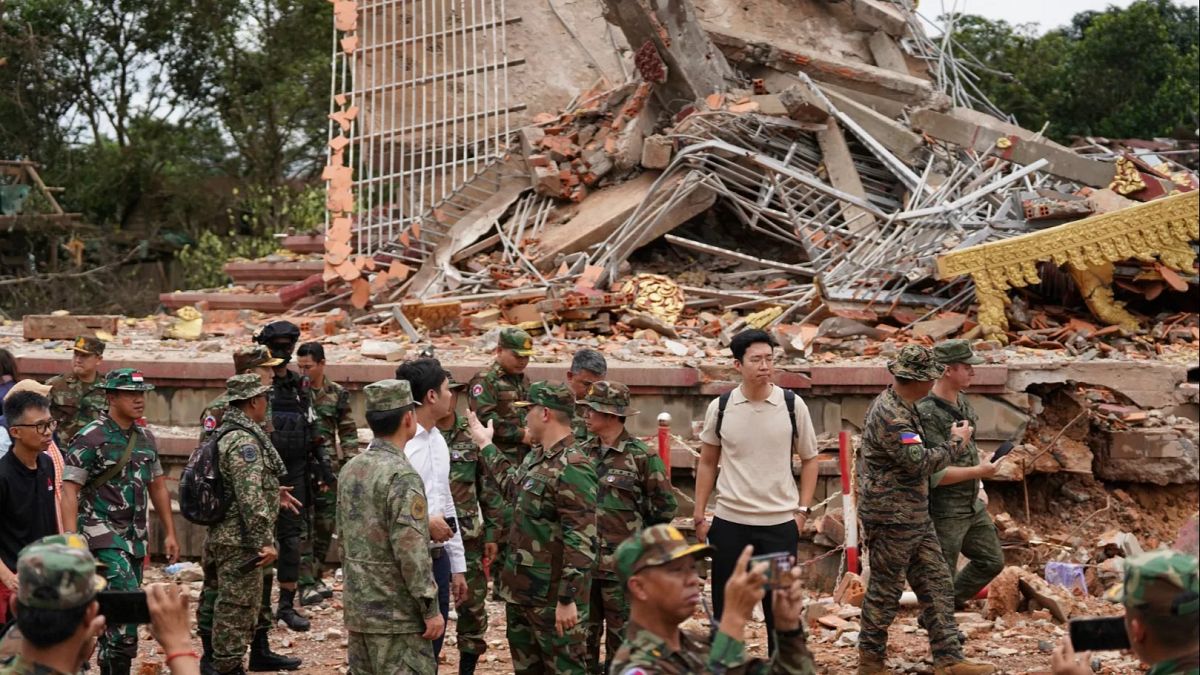

The global stage is witnessing significant developments as countries take resolute steps towards peace, integrity, and recognition amidst intricate geopolitical dynamics. A notable call for calm and positive engagement resounds through these initiatives.
In Southeast Asia, Thailand and Cambodia are making strides to solidify their ceasefire, marked by heightened diplomatic activities. Following a ceasefire agreement reached in Malaysia, both nations are engaging in gestures of goodwill by planning border visits for diplomats. This initiative aims to strengthen the fragile truce that has witnessed strains due to mutual accusations of violations. The concept behind these border visits is to foster better understanding and confidence among leaders, ultimately paving the way for a sustained peaceful dialogue.
On the European front, Portugal is engaging in a conscientious deliberation regarding the recognition of Palestinian statehood. As the debate unfolds, Portugal is consulting major political factions and the president, seeking consensus on this sensitive issue. Currently, 144 out of 193 United Nations member states acknowledge Palestine as a state, though only a handful of European Union member countries have done so. This move by Portugal is part of a broader contemplation across the European continent about acknowledging Palestinian aspirations, which may contribute to a more balanced diplomatic landscape in the region.
In the heart of Eastern Europe, Ukraine is making essential strides in its anti-corruption endeavors by reinstating the independence of its anti-graft watchdogs. The Ukrainian parliament recently passed a law reversing a previous decision that had curtailed the powers of two key anti-corruption agencies. This legislative move is pivotal for Ukraine, especially as it aspires to join the European Union and continues to rely on substantial Western aid amidst ongoing conflicts. The reinstatement of these watchdogs’ independence has been welcomed with enthusiasm, as symbolic chants of “the people are the power” echoed among protesters in Kyiv. This shift reflects a commitment to transparency and integrity, crucial elements for Ukraine’s domestic reform and international legitimacy.
The repeal of the earlier law that had weakened the anti-corruption bodies came on the heels of widespread protests, underscoring the public’s demand for accountability and resistance against any potential shielding of powerful individuals from scrutiny. President Volodymyr Zelenskyy’s administration faced significant pressure to rectify the earlier legislative changes, culminating in this celebrated reversal. By restoring the independence of these bodies, Ukraine reaffirms its dedication to fighting entrenched corruption, aligning with global anti-corruption norms and expectations.
Together, these developments highlight a conscious drift towards dialogue, recognition, and institutional integrity across various regions. They underpin the vital role of proactive and mindful diplomacy and governance, fostering environments where peace and transparency can thrive. Such actions not only resonate within the countries involved but also contribute to shaping a more cohesive and cooperative international community. Indeed, as we witness these strategic, deliberate steps, the hope for a harmonious global society is brought into clearer focus, nurturing a future defined by understanding and mutual respect.
Source: {link}
